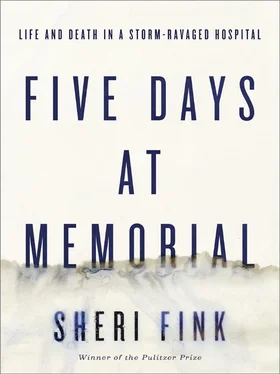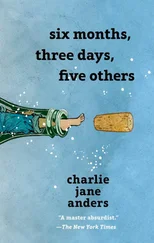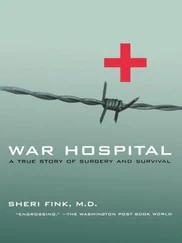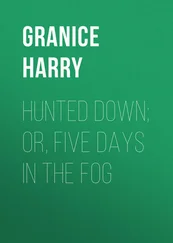Dr. Cyril Wecht—Forensic pathologist; coroner, Allegheny County, PA (until 2006)
Dr. James Young—Special advisor to the Government of Canada on emergency management; president, American Academy of Forensic Sciences (2006–2007); former chief coroner of Ontario, Canada
Others
Government Officials
Louisiana governor Kathleen Babineaux Blanco (2004–2008)
US senator Mary Landrieu (since 1997)
Mayor Ray C. Nagin, City of New Orleans (2002–2010)
Emergency Responders and Experts
Knox Andress—Health resources services administration district regional coordinator for part of northwest Louisiana, based in Shreveport; registered nurse at CHRISTUS Schumpert Health System; communicated with LifeCare corporate officials during the disaster
LTJG Shelley Decker, US Coast Guard (now LT); at emergency command center, Alexandria, Louisiana
Cynthia Matherne—Health resources services administration district regional coordinator for part of southeast Louisiana, including New Orleans; based at the emergency operations center in New Orleans City Hall; communicated with Tenet Healthcare officials during the disaster
Michael Richard, US Coast Guard Auxiliary; at emergency command center, Alexandria, Louisiana
Dr. Robert Wise—Vice president, division of standards and survey methods, Joint Commission on Accreditation of Healthcare Organizations, JCAHO (now medical advisor, division of healthcare quality evaluation at the organization, renamed the Joint Commission)
Colleagues and Patients of Dr. Anna Pou
Dr. Daniel Nuss—Chairman, Department of Otolaryngology; head and neck surgery, Louisiana State University Health Science Center
James O’Bryant—53, patient of Dr. Anna Pou
• Brenda O’Bryant, wife
• James Lawrence O’Bryant, son
• Tabatha O’Bryant, daughter
Defense Attorneys
Eddie Castaing—Attorney for Lori Budo
Richard T. Simmons Jr.—Attorney for Dr. Anna Pou
THIS BOOK RECOUNTS what happened at Memorial Medical Center during and after Hurricane Katrina in August 2005 and follows events through the aftermath of the crisis, when medical professionals were arrested and accused of having hastened the deaths of their patients. Many people held a piece of this story, and I conducted more than five hundred interviews with hundreds of them: doctors, nurses, staff members, hospital executives, patients, family members, government officials, ethicists, attorneys, researchers, and others. I was not at the hospital to witness the events. I began researching them in February 2007 and wrote an account of them in 2009, copublished on the investigative news site ProPublica and in the New York Times Magazine : “The Deadly Choices at Memorial.”
Because memories often fade and change, source materials dating from the time of the disaster and its immediate aftermath were particularly valuable, including photographs, videotapes, e-mails, notes, diaries, Internet postings, articles, and the transcripts of interviews by other reporters or investigators. The narrative was also informed by weather reports, architectural floor plans, electrical diagrams, and reports prepared by plaintiff and defense experts in the course of civil litigation; and I visited the hospital and other sites depicted in the book.
Dialogue rendered in quotation marks is reproduced exactly as it was recalled in interviews, or is taken directly from transcripts and other primary sources. If one person recounted an important conversation, I generally attempted to contact all participants, but some declined to speak, and at times memories were at odds. The main text and Notes highlight areas of significant dispute and indicate the sources of quotes when they do not derive from interviews with me. Typographical mistakes are preserved in quoted e-mails to give the reader a sense of the urgency involved in their production.
This book relates the thoughts, impressions, and opinions of the people in it, perhaps the most fraught aspect of narrative journalism. Attributed thoughts or feelings reflect those that a person shared in an interview, wrote down in notes, a diary, or a manuscript, or, less commonly, expressed to others whom I interviewed. As any book reflects the interwoven interpretations and insights of its author, I have tried to make these distinct. All errors are mine.

PART I
DEADLY CHOICES
Blindness was spreading, not like a sudden tide flooding everything and carrying all before it, but like an insidious infiltration of a thousand and one turbulent rivulets which, having slowly drenched the earth, suddenly submerge it completely.
—José Saramago,
Blindness

PROLOGUE
AT LAST THROUGH the broken windows, the pulse of helicopter rotors and airboat propellers set the summer morning air throbbing with the promise of rescue. Floodwaters unleashed by Hurricane Katrina had marooned hundreds of people at the hospital, where they had now spent four days. Doctors and nurses milled in the foul-smelling second-floor lobby. Since the storm, they had barely slept, surviving on catnaps, bottled water, and rumors. Before them lay a dozen or so mostly elderly patients on soiled, sweat-soaked stretchers.
In preparation for evacuation, these men and women had been lifted by their hospital sheets, carried down flights of stairs from their rooms, and placed in a corner near an ATM and a planter with wilting greenery. Now staff and volunteers—mostly children and spouses of medical workers who had sought shelter at the hospital—hunched over the infirm, dispensing sips of water and fanning the miasma with bits of cardboard.
Supply cartons, used gloves, and empty packaging littered the floor. The languishing patients were receiving little medical care, and their skin felt hot to the touch. Some had the rapid, thready pulse of dehydration. Others had blood pressures so low their pulses weren’t palpable, their breathing the only evidence of life. Hand-scrawled evacuation priority tags were taped to their gowns or cots. The tags indicated that doctors had decided that these sickest individuals in the hospital were to be evacuated last.
Among them was a divorced mother of four with a failing liver who was engaged to be remarried; a retired church janitor and father of six who had absorbed the impact of a car; a WYES public television volunteer with mesothelioma, whose name had recently disappeared from screen credits; a World War II “Rosie Riveter” who had trouble speaking because of a stroke; and an ailing matriarch with long, braided hair, “Ma’Dear,” renowned for her cooking and the strict but loving way she raised twelve children, multiple grandchildren, and the nonrelatives she took into her home.
In the early afternoon a doctor, John Thiele, stood regarding them. Thiele had taken responsibility for a unit of twenty-four patients after Katrina struck on Monday, but by this day, Thursday, the last of them were gone, presumably on their way to safety. Two had died before they were rescued, and their bodies lay a few steps down the hallway in the hospital chapel, now a makeshift morgue.
Thiele specialized in critical care and diseases of the lungs. A stocky man with a round face and belly, and skinny legs revealed beneath his shorts, he answered often to “Dr. T” or, among friends, “Johnny,” and when he smiled, his eyes crinkled nearly shut. He was a native New Orleanian, married at twenty, with three children. He was a golfer and a Saints football fan. He liked to smoke a good cigar while listening to Elvis.
Читать дальше













